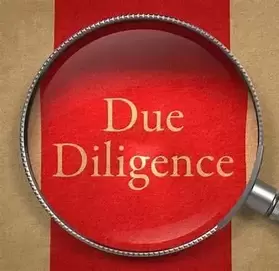November 16, 2022
By Anne Pansard, Cross-border attorney. Admitted to practice in Paris, New York and Illinois.
CHOOSING THE RIGHT PARTNERS IN THE UNITED STATES: A ROADMAP TO A SUCCESSFUL COMMERCIAL LAUNCH
An increasing number of European companies are looking towards the United States for growth as they face the prospects of an economic downturn in their own backyard. The U.S. is by no means recession-proof. But its energy reserves, currency, demographics, flexible labor market and business-friendly culture make it exceptionally resilient. Some refer to this as the “American exception.”
My name is Anne Pansard. Born and raised in France, I took a leap of faith and moved to the U.S. twenty years ago to become a business attorney. In this article, I will share practical tips to help you select the right approach and business partners to grow your sales in the United States. I won’t focus on the M&A approach in this article. Instead, I will describe the due diligence that you should conduct to select the right distributors or joint-venture partners in the United States. But before choosing the right partners, one must find the right path:
First, come up with a sales strategy that is adapted to the market
By Anne Pansard, Cross-border attorney. Admitted to practice in Paris, New York and Illinois.
CHOOSING THE RIGHT PARTNERS IN THE UNITED STATES: A ROADMAP TO A SUCCESSFUL COMMERCIAL LAUNCH
An increasing number of European companies are looking towards the United States for growth as they face the prospects of an economic downturn in their own backyard. The U.S. is by no means recession-proof. But its energy reserves, currency, demographics, flexible labor market and business-friendly culture make it exceptionally resilient. Some refer to this as the “American exception.”
My name is Anne Pansard. Born and raised in France, I took a leap of faith and moved to the U.S. twenty years ago to become a business attorney. In this article, I will share practical tips to help you select the right approach and business partners to grow your sales in the United States. I won’t focus on the M&A approach in this article. Instead, I will describe the due diligence that you should conduct to select the right distributors or joint-venture partners in the United States. But before choosing the right partners, one must find the right path:
First, come up with a sales strategy that is adapted to the market

Keep in mind that the model of your European sales network may not be adapted to the U.S. market. The country is so large that in many industries, you will likely need a much larger network of partners to distribute your products than in Europe.
More generally, do not assume that your existing commercial strategy can be applied to a completely different market. The O.E.M. or dealership network may be centralized in your country and highly fragmented in the U.S, or vice versa. In other cases, selling your products directly, under your own brand, may turn out to be very challenging. Even large European players have learned this lesson the hard way. Decathlon, a giant French sporting goods retailer, retreated from the U.S. market in 2006 after a failed first U.S. launch. Ten years later, it gave it another go and opened two locations in California. In January of 2022, the retailer announced the closure of these locations and the change of its U.S. strategy. Decathlon will now focus on online sales, and partner with established U.S. retailers such as Walmart or Target. The third approach seems promising.
The Decathlon experience is not isolated. Figuring out the U.S. consumer and the U.S. market can be challenging. Each state, each region, has its own culture and purchasing habits. In some situations, your product or approach may need to be adjusted within the United States. Investing in meaningful local market studies is a necessity.
Second, conduct due diligence before you commit
More generally, do not assume that your existing commercial strategy can be applied to a completely different market. The O.E.M. or dealership network may be centralized in your country and highly fragmented in the U.S, or vice versa. In other cases, selling your products directly, under your own brand, may turn out to be very challenging. Even large European players have learned this lesson the hard way. Decathlon, a giant French sporting goods retailer, retreated from the U.S. market in 2006 after a failed first U.S. launch. Ten years later, it gave it another go and opened two locations in California. In January of 2022, the retailer announced the closure of these locations and the change of its U.S. strategy. Decathlon will now focus on online sales, and partner with established U.S. retailers such as Walmart or Target. The third approach seems promising.
The Decathlon experience is not isolated. Figuring out the U.S. consumer and the U.S. market can be challenging. Each state, each region, has its own culture and purchasing habits. In some situations, your product or approach may need to be adjusted within the United States. Investing in meaningful local market studies is a necessity.
Second, conduct due diligence before you commit

When a European company purchases a U.S. target, it tends to be extra careful in its due diligence process. Surprisingly, when a European company selects a JV partner or a distributor, it often omits to conduct any due diligence. Just as you would not purchase another company without conducting some prior due diligence, you should not commit to a long-term business relationship without knowing your partner. Here are a few areas of investigations that you should consider:
- Does the company have a history of litigation? It is helpful to know if your potential partner has been sued or regularly sues others like you. To find out, you can run what we call a “litigation search”: this is typical in an M&A due diligence but not automatic when choosing a distributor or JV partner. Yet, a litigation search only takes a few minutes and can reveal very valuable information on your prospect’s tendency to engage in litigation or breach its promises. Court records are public, and their access is quick and free.
- Is the company financially solid? The financials of privately held U.S. companies are not publicly accessible in the United States but (1) you can order a Dun & Bradstreet report and get an idea of their tendency to pay creditors on time and (2) if you’re entering into a joint venture, you may legitimately request to see some financials. However, for privately-owned companies, keep in mind that the financials do not need to be certified or audited in the U.S., so the financials may not tell you the whole story.
- What territory can you realistically expect your potential distributor to cover? If you’re considering the grant of exclusive distribution rights, you need to check if the company has a meaningful presence in the territory that you’re assigning. This may seem obvious, but I regularly see European companies granting large territorial exclusive rights to partners that don’t have any presence in parts of the country. To verify their distribution reach, inquire about (1) the size, location, qualifications of their sales force and customer service; (2) the location and profile of their existing customers; (3) their experience with similar products; and (4) their projected sales, by state, for your products. The last point may serve as a benchmark for minimum sales volume that you can negotiate in exchange for exclusive distribution rights.
- Does the company currently sell products that compete with yours? In some industries, distributors and reps sell many brands and will not limit themselves. You may not be able to obtain exclusive rights from the partner, but in that case, you should think twice before granting any generous exclusive rights.
- Does the company currently develop products that compete with yours? Try to find out if there is a chance that the partner may develop its own line of competing products. It may not always be possible to get a clear answer but when in doubt, you should avoid sharing valuable trade secrets and technical information that could empower your partner. You should also have the right to exit the relationship if your distributor decides to compete with you.
- How is the company promoting the products of its other suppliers on its website and social media: some resellers display the products they sell in a way that makes clients believe that the product is their own. You should make sure that your brand is clearly showcased and that any co-branding does not lead to confusion about the identity of the manufacturer of the product. Otherwise, your brand may remain unknown in the U.S., even as your sales grow.
Third: negotiate!

If, in light of your due diligence, you decide to go ahead with the prospect, you should clearly define in your contract the aspects that matter the most to you1. In countries like France and Germany, it is common for codes to impose certain rules and protections on the parties. This makes some European companies assume that the system is similarly rigid in the United States. In fact, in the U.S., for B2B transactions, codes tend to provide default rules that the parties can freely set aside. In other words, “freedom of contract” governs. This means that a judge or arbitrator will honor the parties’ negotiated terms. For that reason, if you have leverage to negotiate, you should take advantage of the “freedom of contract” principle to protect your interests.
A thoughtful sales strategy, carefully selected partners and negotiated contracts are the backbones of the successful distribution of your products. Don’t take any shortcuts, conduct your due diligence, and leverage your ability to negotiate protective contracts.
Anne Pansard, Founding Partner
Who are we?
We are a boutique international law firm that specializes in the representation of the U.S. affiliates of European companies. Our attorneys are trained in several different legal systems and have lived outside of the United States a portion of their lives. That understanding of our clients’ unique perspective is important to highlight differences between legal systems. This allows our clients to comfortably navigate the U.S. legal landscape and avoid making risky assumptions about similarities with their country of origin.
Disclaimer: The content of this article has been prepared by Pansard & Associates LLC for informational purposes and is considered advertising material. This information is not intended to create, and does not create, a lawyer-client relationship. You should not act upon this information without seeking advice from a lawyer licensed in your own state. Please do not send or disclose to our firm confidential information or sensitive materials without our consent. Thank you.
A thoughtful sales strategy, carefully selected partners and negotiated contracts are the backbones of the successful distribution of your products. Don’t take any shortcuts, conduct your due diligence, and leverage your ability to negotiate protective contracts.
Anne Pansard, Founding Partner
Who are we?
We are a boutique international law firm that specializes in the representation of the U.S. affiliates of European companies. Our attorneys are trained in several different legal systems and have lived outside of the United States a portion of their lives. That understanding of our clients’ unique perspective is important to highlight differences between legal systems. This allows our clients to comfortably navigate the U.S. legal landscape and avoid making risky assumptions about similarities with their country of origin.
Disclaimer: The content of this article has been prepared by Pansard & Associates LLC for informational purposes and is considered advertising material. This information is not intended to create, and does not create, a lawyer-client relationship. You should not act upon this information without seeking advice from a lawyer licensed in your own state. Please do not send or disclose to our firm confidential information or sensitive materials without our consent. Thank you.
1. For example, a distribution agreement should at least contemplate the scope of the exclusivity, any rights you want to retain, minimums sales targets, exclusion of certain damages, limited warranties, intellectual property and exit rights.
